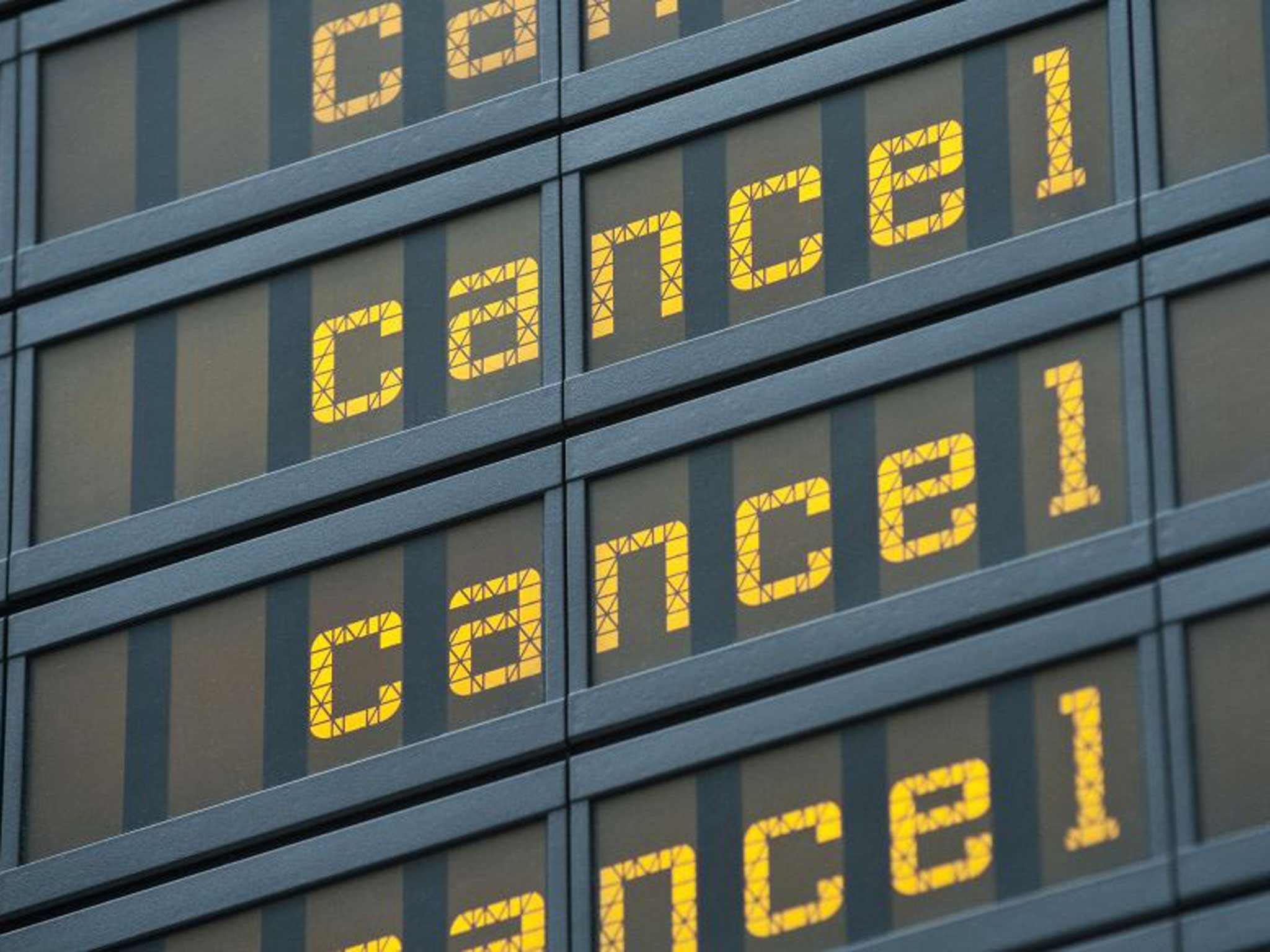Simon Calder: New legal ruling spells trouble for airlines
The man who pays his way

Be careful what you wish for. As the Wednesday sun shone down on the Strand in central London, a most pleasant and well-intentioned man named Ron Huzar walked into the High Court. I climbed the ancient steps to Court 7 with him. We sat, waited, stood for Lord Justice Elias, then sat again for him to announce:
"This appeal is dismissed and leave to appeal to the Supreme Court is refused."
Those 14 words have established a legal precedent that could cost airlines millions of pounds – and affect your future travels.
In October 2011, Mr Huzar was booked on a Jet2 flight from Manchester to Malaga. A faulty fuel valve meant he and the other passengers eventually arrived in Spain 27 hours late.
Now, every departure from an EU airport, and any flight by an EU airline worldwide, is covered by European passenger-rights legislation known as EC261. The airline must provide accommodation and meals as appropriate, as Jet2 did in this case. When the European law came into effect in 2005, cash compensation was stipulated only for cancellation and overbooking – not for delayed flights. But five years ago, the European Court of Justice ruled that passengers deserved payouts for any flight that arrives more than three hours late: €250 for short hops under 1,500km (e.g. across the Irish Sea), €400 for flights of 1,500-3,500km (such as Mr Huzar's Manchester to Malaga trip), and €600 for longer hauls – though just €300 for a three- to four-hour delay.
The only defence against paying out is "extraordinary circumstances". If ash clouds, absent air-traffic controllers or Amazonian-grade thunderstorms wreak havoc with schedules, no compensation applies. Many airlines, including Jet2, have also rejected claims due to technical defects. But Mr Huzar refused to give up. He took the airline to court, and lost the case, but then appealed to Manchester County Court and won. Jet2 appealed against that verdict, but this week the Appeal Court agreed that mechanical faults comprise an inherent element of running an airline and cannot be used as an excuse.
As we emerged from the court, Mr Huzar told me: "This is just recompense at the end of the day." Jet2 described the judgment as "disappointing" and said it could "have a significant impact on the entire airline industry". The carrier is now appealing directly to the Supreme Court, despite law lord Elias's line.
Costly consequences
The Independent Traveller is assiduously pro-consumer and has always fought for fair treatment for passengers. Yet this ruling looks unreasonably onerous for airlines – and potentially expensive for their customers.
Anyone who has suffered a long delay on a qualifying flight since the summer of 2008 is perfectly entitled to claim. In particular, passengers who have had applications turned down on the grounds of mechanical defects can go back to the airline, citing Huzar v Jet2 as the precedent-setting case and seek restitution (in real money, not vouchers, as some firms try to insist).
If everyone aboard Mr Huzar's flight from Manchester to Malaga claims, compensation will run to almost £50,000 – much more than the fares collected from that flight from north-west England to south-east Spain. How will airlines compensate for the retrospective compensation? The obvious candidates for meeting claims are higher fares and/or reduced services.
Looking ahead, the ruling incentivises airlines to limit mechanical delays to flights – for example, by having more aircraft and crew on standby. But that is not a cost-free undertaking, and again the expense will be passed on to passengers in the form of pricier tickets.
Safety, according to everyone in aviation, is non-negotiable. No captain will operate his or her aircraft if they believe there is a risk. In the UK, a quarter-century without a fatal crash involving a passenger jet demonstrates the industry's ferocious commitment to safety. But privately, people in the industry have expressed concerns that the financial pressures created by the judges' judgment could conceivably cloud pilots' judgement.
More passport pain
No compensation is due to a prospective holidaymaker who lacks a valid passport. The Passport Office makes clear that you should not book travel unless you have the necessary documentation.
Here we are in mid-June and back on the little-known Mediterranean island of Fiasco del Passport. According to the PCS union, job cuts at the Passport Office have led to a backlog of half-a-million passports. Ed Miliband told Parliament on Wednesday that: "Tens of thousands of people are finding their holidays are being cancelled because they are not actually getting a passport." The Government refutes the Labour leader's assertion and maintains that the vast majority of passports are being processed as normal.
By the time autumn arrives, we will discover who was right. But let's hope this latest panic helps drag the Passport Office into the 21st century. On a backstage visit a couple of years ago, I was astonished to see how prominent paper and sticky-backed plastic are to the production process – more Blue Peter than Tomorrow's World. Straightforward renewals should be achievable online, saving resources for trickier cases and reducing the risk of anxiety superseding anticipation.
Subscribe to Independent Premium to bookmark this article
Want to bookmark your favourite articles and stories to read or reference later? Start your Independent Premium subscription today.

Join our commenting forum
Join thought-provoking conversations, follow other Independent readers and see their replies